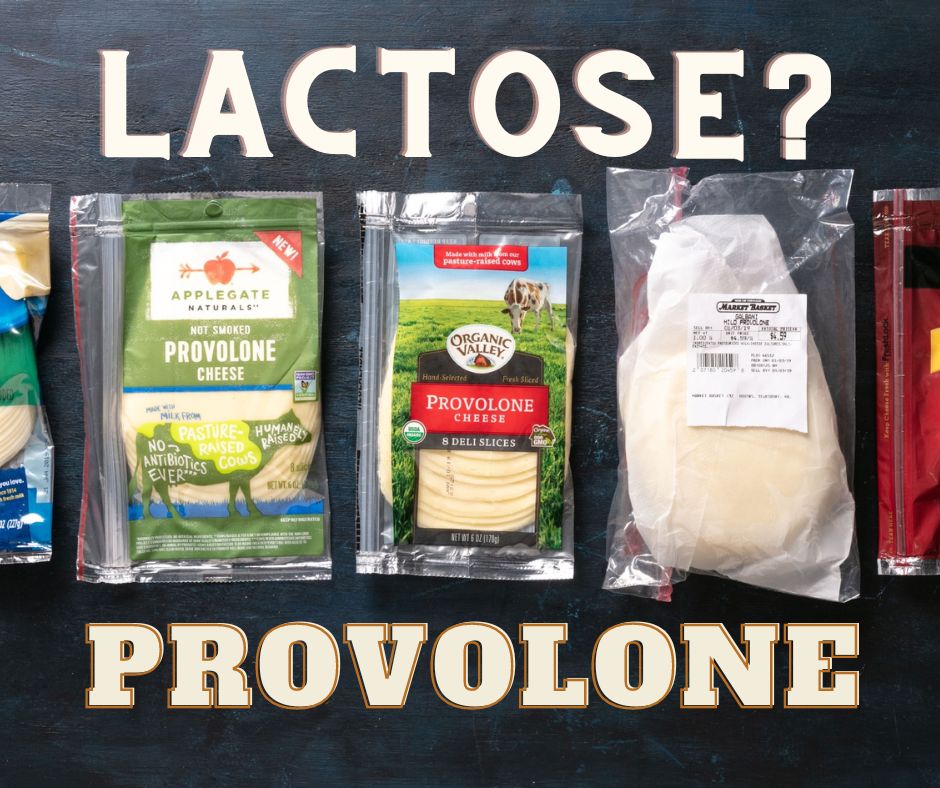Last Updated on August 9, 2023 by Aaron
Provolone cheese is not inherently lactose-free, but it is lower in lactose compared to some other cheeses.
Like many aged cheeses, the lactose content in provolone decreases during the cheese-making and aging process because the bacteria used in fermentation consume much of the lactose.
That being said, the exact lactose content can vary depending on how the cheese was made and how long it was aged. Some people with lactose intolerance might be able to consume small amounts of provolone without experiencing symptoms, while others might still react to it.
Table of Contents
Amount of Lactose in Provolone
Most of the lactose gets broken down by bacteria and enzymes during fermentation.
While the exact amount of lactose in provolone can vary depending on the specific process and aging time, aged cheeses typically contain less than 1 gram of lactose per serving (often less than 0.5 grams). Some sources even claim that certain hard cheeses, including provolone, can have as little as 0.1 gram of lactose per 30-gram serving or even trace amounts.
For example, The Italian PDO Provolone Valpadana dolce (younger provolone aged 60-90 days) has lesser than 0.001g of lactose in 100g of cheese (3) in the laboratory test.
For someone with lactose intolerance, this negligible amount of provolone cheese that can often be well-tolerated without symptoms varies.
On average, many adults with lactose intolerance can tolerate 12-15 grams of lactose (equivalent to one cup of milk) spread out throughout the day with no or minor symptoms (1, 2). That’s around 2-4 grams of lactose per occasion without issues.
Given the low lactose content in provolone, this means that many individuals with lactose intolerance can likely consume a regular serving of provolone (about 30 grams or 1 ounce or 1 standard slice) without significant problems.
However, individual tolerance varies widely, and it’s essential to listen to your body.
Friendlier Brand for Lactose Intolerance
Most brands don’t specify the exact lactose content on the label of their cheeses. Instead, they may list total carbohydrates, but even in aged cheeses like provolone, not all of these carbohydrates are lactose, especially since the aging process breaks down lactose.
For example, if you look up the nutritional data for provolone cheese [4], you might find that 1 oz (about 28 grams) contains roughly 0.6 grams of carbohydrates. This translates to about 2.1 grams or 2.1% of carbohydrates for 100 grams of the cheese. However, because provolone is an aged cheese, a significant portion of this carbohydrate content might not be lactose but rather other by-products of the fermentation process, such as lactic acid.
According to the USDA’s National Nutrient Database, the carbohydrates content per 28g (or 1-ounce) of these popular provolone brands:
- Sargento: 0-1g [5, 6]
- Kraft: 0g [7]
- Boar’s Head: 1g [8, 9]
- Organic Valley: 0-1g [10, 11]
- BelGioioso: 0-1g [12, 13]
- Tillamook: 0-1g [14, 15]
- Daiya (dairy-free): 5g [16]
Most brands fall in between 0-1g per serving. Alternatively, there are also lactase supplements available that can help break down lactose if consumed before or with dairy products.
If you require strictly lactose-free products, it’s best to seek out cheeses that are specifically labeled as “lactose-free”. For provolone, there aren’t many. One option is to go for plant-based cheeses which are made from nuts, seeds, or soy, these cheeses are naturally lactose-free. Popular brands include “Miyoko’s,” “Daiya,” and “Follow Your Heart.”
Tips: Choose the Older Provolone!
Choosing aged provolone (also known as “piccante” or “sharp” provolone) over dolce (or “sweet” or “mild”) provolone would generally be a better option.
Aging Process Reduces Lactose: The longer a cheese is aged, the more the lactose in it gets broken down. This is because the bacteria used in the cheese-making process continue to ferment lactose into lactic acid over time, reducing the amount of lactose in the cheese.
Dolce vs. Piccante: Dolce provolone is typically aged for 2-3 months, while piccante (sharp) provolone can be aged for more than a year. The longer aging time of piccante provolone means it will usually have a lower lactose content compared to the milder dolce variety.
However, it’s worth noting that even dolce provolone, given its status as an aged cheese, is likely to have reduced lactose compared to fresh cheeses.

